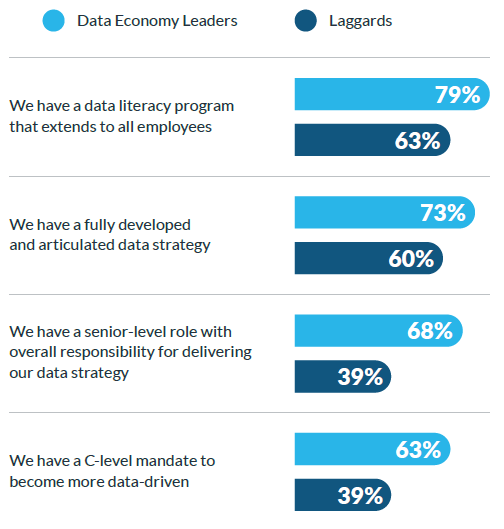According to Snowflake, the data economy enables businesses to tackle the most complex business problems and elevate the services they can offer above their competitors. It allows them to build new revenue streams by taking tailored data products and services to their customers, partners, and any other organisation participating in the data economy.
The company claims that only 6% of businesses globally use, access, and share data and data services in a way that grants them all the business benefits provided by a robust data strategy.
While many companies have ambitions to take advantage of data to give them the business edge needed to be successful, these organisations require guidance to lay the right foundations.
The study revealed that only 38% of businesses surveyed globally and 40% across APAC are using data to inform the business decisions they make.
Barriers to strategic data use
According to the study, many struggle to manage and effectively extract value from it. The ability to access all forms of data is an integral part of a data strategy, yet 45% agree they can easily access all available data through a single system/application and just half agree their data users have ubiquitous data access regardless of their location.
Many organisations also fail to break down internal data silos, impeding data sharing and collaboration across an organisation’s business units – only 55% say that sharing can happen freely in their organisation.
Among the top barriers to using data strategically, 13% cited lack of investments from leadership teams, 14% cited trust barriers, and 15% cited cultural barriers to using data strategically.
The top two barriers identified were lack of proper skills (19%), and the right tools and platforms (16%). Only 51% agree that they have a C-level mandate to become more data-driven, compared to 63% among Data Economy Leaders.
Many companies also believe that the technologies they use are not fit for the data economy. An effective data platform must be scalable and elastic and manage a near-unlimited amount of data, yet fewer than one-third of the IT respondents say their data management solutions are easily scalable. More importantly, less than one-quarter say their solution lets them share, access and integrate data in near real-time.

“Organisations which are still using legacy on-premises technology which is not suitable for modern data needs can make the change by implementing platforms in the cloud as well as driving a C-level mandate to cultivate a collaborative data culture. They would be able to progress in their journey to becoming Leaders that can effectively manage data and gain access to near real-time data,” said Jon Robertson, president of Snowflake Asia Pacific and Japan.
The winning attributes

Data Economy Leaders, companies which develop strategies that democratise access to data, integrate new technology, and demonstrate the true business benefits of capitalising in the data economy, attributed their success to four things:
- Provides unimpeded access to data, no matter where the data users reside;
- Uses data to inform all or most business decisions;
- Uses data to a great or significant extent to advance strategic goals, such as growing revenue and identifying new business opportunities;
- Has the ability to share and access data securely with external organisations.
The research claims that Data Economy Leaders achieve significantly more than those that don’t use, access or share data in these ways. For example, 77% of Data Economy Leaders globally experienced annual revenue growth over the past three years, while just 36% of ‘Laggards’ can say the same. Moreover, 60% of Leaders saw their market share grow over this period, compared to only 31% of Laggards.
The businesses that aren’t using their data to their full potential are being left behind by the competition, which actively uses data to strategically support the company and make critical business decisions.
For example, 85% of organisations surveyed globally and 83% across APAC reported that they use data or are soon planning to use data to identify risk and prevent fraud within their business demonstrating a growing trend for businesses to use data in a preventative way, to protect themselves and their customers.
In addition, 80% of organisations globally use or soon plan to use data strategically to launch new revenue streams or pricing models. Similar trends are seen across organisations in APAC. 82% of organisations globally use or are soon planning to use data to reveal new market opportunities, while in APAC it is 80% of organisations.
“Given the competitive nature of business in APAC, data collaboration, cutting-edge business analytics, and inspiring data leadership are imperative for organisations to survive and win in the data economy."
Jon Robertson
Robertson further suggested that data-driven organisations would be able to solve the most complex business problems, improve customer experiences and crackdown on fraud as compared to Laggards that do not have total control over all of the data they possess and are potentially at increased risk of security threats.




